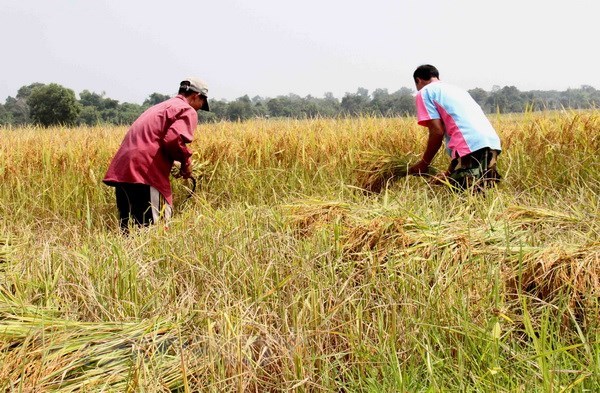
Agriculture will be the hardest hit sector as about 6.6 million labourers will be made redundant by 2028. (Photo: VNA)
In the Report “Technology and the Future of ASEAN Jobs”, experts forecast that artificial intelligence (AI) in software, hardware and robotics will change the employment landscape among ASEAN’s six largest economies of Brunei, Indonesia, Malaysia, the Philippines, Singapore and Thailand.
Agriculture will be the hardest hit sector as about 6.6 million labourers will be made redundant by 2028. Demands for labourers will drop as jobs can be replicated with the use of technology.
However, productivity gains from technology adoption will reduce prices and drive growth, which in turn will create new demand for workers in other sectors like wholesale and retail, manufacturing, construction and transport.
In the article “AI threatens ASEAN Jobs” by Stephen Chin on aseanpost.com, the author said that job displacement in the Philippines and Indonesia will be lower in terms of percentage of workforce. This is due to the abundance of cheap labour, making it harder for technology adoption to show cost savings benefit.
Singapore is estimated to have 500,000 jobs displaced by 2028, or almost 21 percent of its workforce, due to its digital transformation.
Meanwhile, Vietnam is expected to see 7.5 million job displacements by 2028, or 13.8 percent of the country’s workforce. A large number of these jobs are monotonous and classified as low-productivity, mostly in agriculture.
In Cambodia, where the textiles, clothing and footwear sector makes up of about 90 percent of its manufactured exports, automation threatens over 600,000 jobs.
The ASEAN+3 Macroeconomic Research Office Limited (AMRO) said that developing countries do not have much time to adapt to the shifting from basic automation to advanced AI./.
VNA
 Southeast Asia’s digital economy to top 300 billion USD by end 2025
Southeast Asia’s digital economy to top 300 billion USD by end 2025



